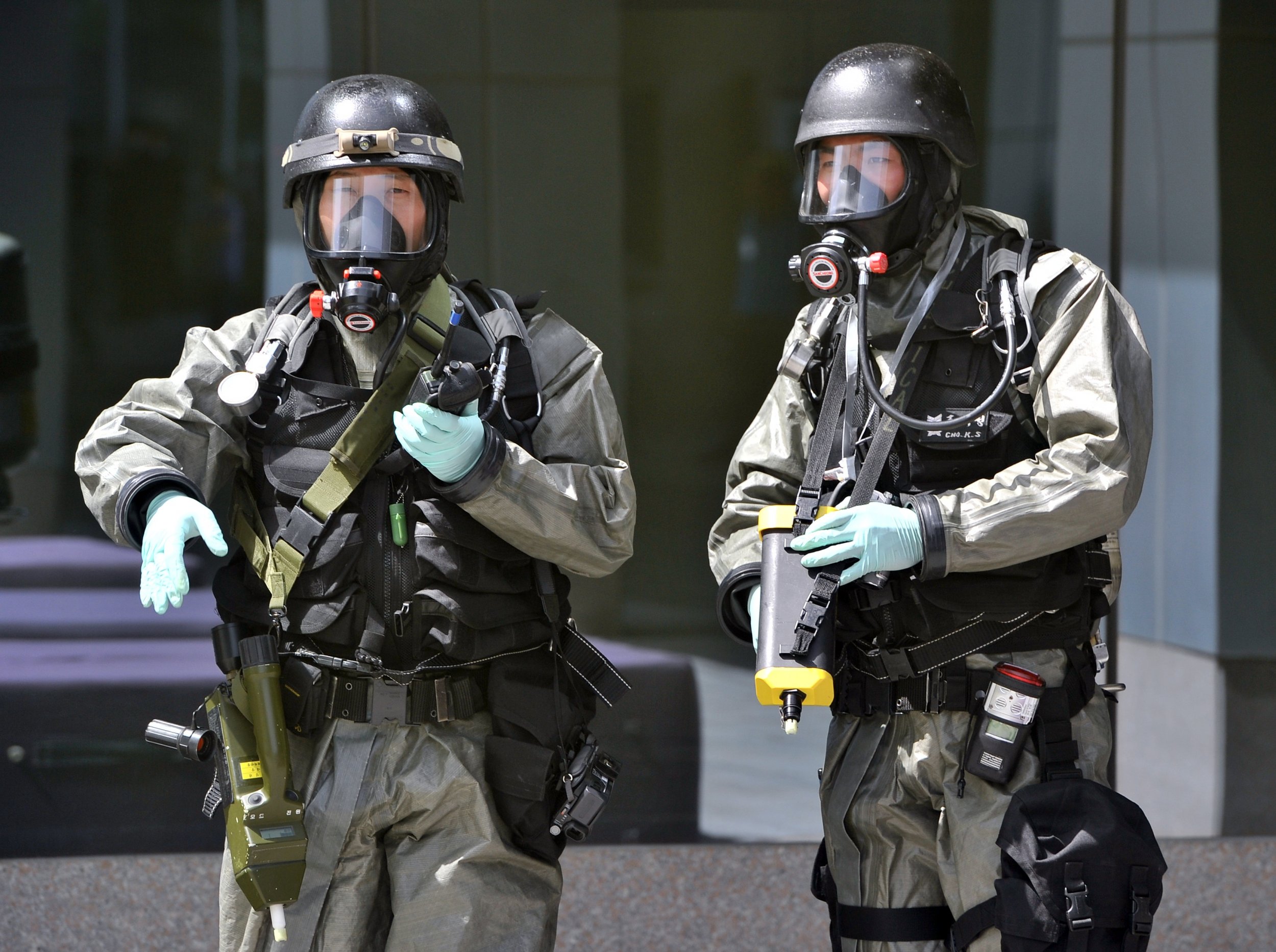
Anthrax antibodies were found in the blood of a North Korean soldier who defected to the South, intelligence sources told Seoul's media, increasing concerns about the country's biological weapons production.
The unidentified intelligence official who spoke to South Korea's Channel A network did not specify which soldier it was referring to; at least four North Korean soldiers have defected in the past seven months. "Anthrax antibodies have been found in the North Korean defector who has escaped this year," the official was quoted as saying in the news report, which aired Tuesday.
North Korea is thought to be vaccinating top officials against anthrax, while the defectors held lower ranks. Seoul's intelligence agency is investigating what kind of vaccine stockpiles the country has developed, the report said.
Senior defense analyst Shin Jong Woo of the Korea Defense Security Forum (KODEF) told Channel A the vaccine is likely to have been given to soldiers who handle the bacteria for military purposes, as unconfirmed reports last week indicated Pyongyang was looking to load anthrax on its intercontinental ballistic missiles (ICBMs).
Related: What we know, and what we don't, about Kim Jong Un's biological weapons of mass destruction
Anthrax can infect human beings through either ingestion, inhalation or skin exposure, and it affects the normal functioning of the body's immune-system cells. While ingestion or skin exposure to anthrax can sometimes be treated, inhalation is highly fatal, with a mortality rate of at least 80 percent, according to the FDA.
Despite concerns about North Korea's biological weapons production, Seoul's soldiers are not vaccinated against deadly bacteria, unlike U.S. troops deployed on the peninsula, for whom smallpox and anthrax vaccinations have been compulsory for more than a decade. The two countries regularly hold military training exercises to practice their response to possible biological or chemical attacks.
On Monday, Seoul confirmed it had imported 350 doses of anthrax vaccines this year. They are meant to be stocked for treatment rather than vaccination.
"We purchased the vaccines not to prevent but to treat the disease, in case of biological terror attacks," presidential spokesperson Park Soo-hyun said, as quoted in the The Korea Herald. He added that the Korea Centers for Disease Control and Prevention have acquired anthrax vaccines for 1,000 patients for the same purpose.
While North Korea has never publicly acknowledged the development of biological weapons, its leader Kim Jong Un visited Pyongyang's Biological Technology Research Institute in June 2015.
According to Melissa Hanham, research associate at the James Martin Center for Nonproliferation Studies, the facility was not being used as a biological weapons facility at the time—but it could serve that purpose, as she wrote in an analysis published on 38 North, a website dedicated to monitoring North Korea.
According to 2015 documents from the South Korean Defense Ministry, North Korea possesses 13 types of bacteria and viruses that cause disease, known as pathogens. These include anthrax, botulism, cholera, Korean hemorrhagic fever, plague, smallpox, typhoid fever, yellow fever, dysentery, brucellosis, staph, typhus fever and alimentary toxic aleukia.
Seoul estimated Pyongyang could "cultivate and weaponize [the pathogens] within 10 days," and would prioritize anthrax because it is highly deadly and smallpox because it is highly contagious—and its soldiers are thought to be vaccinated against them.
Uncommon Knowledge
Newsweek is committed to challenging conventional wisdom and finding connections in the search for common ground.
Newsweek is committed to challenging conventional wisdom and finding connections in the search for common ground.
About the writer
Sofia Lotto Persio reports mainly on Asia and gender issues for Newsweek. She previously covered international affairs with a specific ... Read more
To read how Newsweek uses AI as a newsroom tool, Click here.






 Subscriber content
Subscriber content